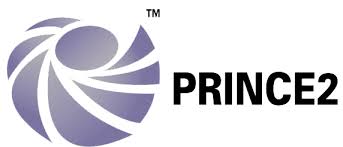
The Integrated Management and Leadership Program Performance Indicators, Intelligent Communication, and Creativity
Course ID: 2507217101127EGI
Course Dates : 21/07/25 Course Duration : 10 Studying Day/s Course Location: Dubai, UAE
Language: Bilingual
Course Category: Professional and CPD Training Programs
Course Subcategories: Leadership and Management Excellence
Course Certified By: * Projacs Academy
* Professional Training and CPD Programs
Certification Will Be Issued From :
KSA
Course Fees: £4,987.22
Vat Not Included in the price. VAT may vary depending on the country where the course or workshop is held.
Click to Pay
Date has passed please contact us Sales@e-s-hub.com
Course Information
Introduction
Leadership and management are no longer confined to hierarchical structures or rigid frameworks. In an era defined by rapid technological advancements, shifting workforce dynamics, and evolving organizational priorities, the need for integrated approaches to leadership has never been more critical. This program addresses the intersection of performance indicators, intelligent communication, and creativity—three pillars that form the foundation of effective leadership in contemporary professional environments. By blending theoretical insights with practical applications, this course equips participants with the tools to navigate complex challenges while fostering innovation and driving measurable outcomes.
One of the most pressing challenges in modern organizations is the misalignment between strategic goals and operational execution. Research from McKinsey & Company highlights that nearly 70% of strategic initiatives fail due to poor implementation, often stemming from inadequate communication and a lack of creative problem-solving. This program bridges these gaps by teaching participants how to design and utilize performance indicators that align with organizational objectives, communicate intelligently to inspire collaboration, and leverage creativity to address unforeseen obstacles. For instance, a case study from Google’s Project Aristotle revealed that psychological safety, fostered through intelligent communication, was the single most important factor in team success—a principle this course explores in depth.
The relevance of this course extends across industries, from healthcare to technology to education. Consider the example of a hospital administrator tasked with improving patient satisfaction scores. Without a clear understanding of performance metrics, effective communication strategies, and creative solutions, such a goal remains elusive. This program provides actionable frameworks, such as the Balanced Scorecard and Design Thinking, enabling participants to tackle similar challenges with confidence. Furthermore, it draws on established theories like Transformational Leadership and Emotional Intelligence to ensure participants develop a holistic skill set that transcends traditional management paradigms.
For individuals, mastering the content of this course translates into enhanced career prospects, increased influence within their organizations, and the ability to lead with purpose. Organizations, on the other hand, benefit from improved efficiency, higher employee engagement, and a culture of innovation. A recent Harvard Business Review article emphasized that companies prioritizing leadership development outperform their peers by up to 20% in key financial metrics. This underscores the tangible value of investing in programs that cultivate both technical expertise and interpersonal acumen.
Despite its importance, many professionals struggle to integrate these competencies into their daily practices. Common pitfalls include over-reliance on outdated metrics, ineffective communication styles, and resistance to creative risk-taking. This course addresses these issues head-on by providing participants with hands-on exercises, real-world simulations, and expert guidance. For example, participants will analyze case studies from companies like Tesla and Patagonia, which have successfully embedded creativity and intelligent communication into their organizational DNA.
Ultimately, this program is designed to empower leaders who can adapt to change, inspire others, and drive results. Whether you are a seasoned executive seeking to refine your skills or an emerging leader eager to make your mark, this course offers the knowledge and tools necessary to thrive in today’s dynamic professional landscape. By combining rigorous academic insights with practical applications, it ensures participants leave equipped to transform not only their careers but also their organizations.
Objectives
By attending this course, participants will be able to:
Analyze the role of performance indicators in aligning individual and organizational goals, ensuring measurable outcomes.
Evaluate various communication strategies to enhance team collaboration, stakeholder engagement, and conflict resolution.
Design creative solutions to complex problems using frameworks such as Design Thinking and Lateral Thinking.
Implement leadership practices that foster psychological safety, trust, and innovation within teams.
Apply industry-specific compliance requirements and ethical standards to leadership decision-making processes.
Who Should Attend?
This course is ideal for:
Mid-level managers, team leaders, and project coordinators seeking to enhance their leadership capabilities.
HR professionals responsible for designing training programs and fostering organizational culture.
Consultants and coaches aiming to provide value-added services to their clients.
Educators and trainers interested in integrating leadership principles into their curricula.
Training Method
• Pre-assessment
• Live group instruction
• Use of real-world examples, case studies and exercises
• Interactive participation and discussion
• Power point presentation, LCD and flip chart
• Group activities and tests
• Each participant receives a 7” Tablet containing a copy of the presentation, slides and handouts
• Post-assessment
Program Support
This program is supported by:
* Interactive discussions
* Role-play
* Case studies and highlight the techniques available to the participants.
Daily Agenda
The course agenda will be as follows:
• Technical Session 08.30-10.00 am
• Coffee Break 10.00-10.15 am
• Technical Session 10.15-12.15 noon
• Coffee Break 12.15-12.45 pm
• Technical Session 12.45-02.30 pm
• Course Ends 02.30 pm
Course Outlines
Foundations of Integrated Leadership
Understanding the evolution of leadership theories (Trait Theory, Situational Leadership).
Defining performance indicators and their role in organizational success.
Exploring the concept of intelligent communication.
Introduction to creativity as a leadership competency.
Day 2:
Performance Indicators and Goal Alignment
Analyzing SMART goals and OKRs (Objectives and Key Results).
Linking performance indicators to strategic objectives.
Tools for monitoring and evaluating progress.
Case study: Aligning KPIs with business strategy at Amazon.
Day 3:
Intelligent Communication Strategies
Principles of effective verbal and non-verbal communication.
Building emotional intelligence in leadership.
Techniques for active listening and feedback delivery.
Role-playing exercise: Resolving workplace conflicts through communication.
Day 4:
Fostering Psychological Safety
Understanding psychological safety and its impact on team performance.
Strategies for creating an inclusive work environment.
Overcoming barriers to open communication.
Group activity: Identifying behaviors that promote trust.
Day 5:
Creative Problem-Solving Frameworks
Introduction to Design Thinking and its applications.
Applying Lateral Thinking to generate innovative ideas.
Brainstorming techniques for collaborative ideation.
Workshop: Solving a real-world organizational challenge creatively.
Week 2
Day 6:
Leadership Practices for Innovation
Characteristics of innovative leaders.
Encouraging risk-taking and experimentation.
Balancing structure and flexibility in leadership.
Case study: How Netflix fosters a culture of innovation.
Day 7:
Compliance and Ethical Leadership
Understanding legal and ethical considerations in leadership.
Navigating compliance requirements specific to your industry.
Promoting ethical decision-making within teams.
Discussion: Lessons from corporate scandals and their implications.
Day 8:
Measuring Leadership Effectiveness
Tools for assessing leadership impact (360-degree feedback, surveys).
Interpreting data to inform leadership development plans.
Continuous improvement through reflective practice.
Exercise: Creating a personal leadership growth plan.
Day 9:
Leading Through Change
Managing resistance to change in organizations.
Communicating vision during periods of transition.
Sustaining momentum and motivation during change initiatives.
Simulation: Leading a team through a major organizational shift.
Day 10:
Capstone Project and Future Applications
Presenting capstone projects integrating course learnings.
Developing action plans for implementing new skills in the workplace.
Networking opportunities with fellow participants.
Closing remarks: The future of integrated leadership.



















































